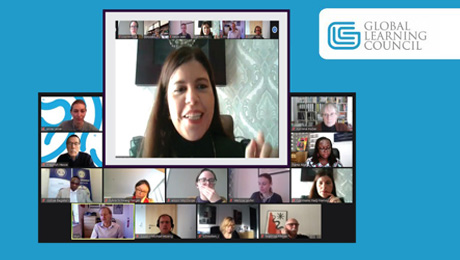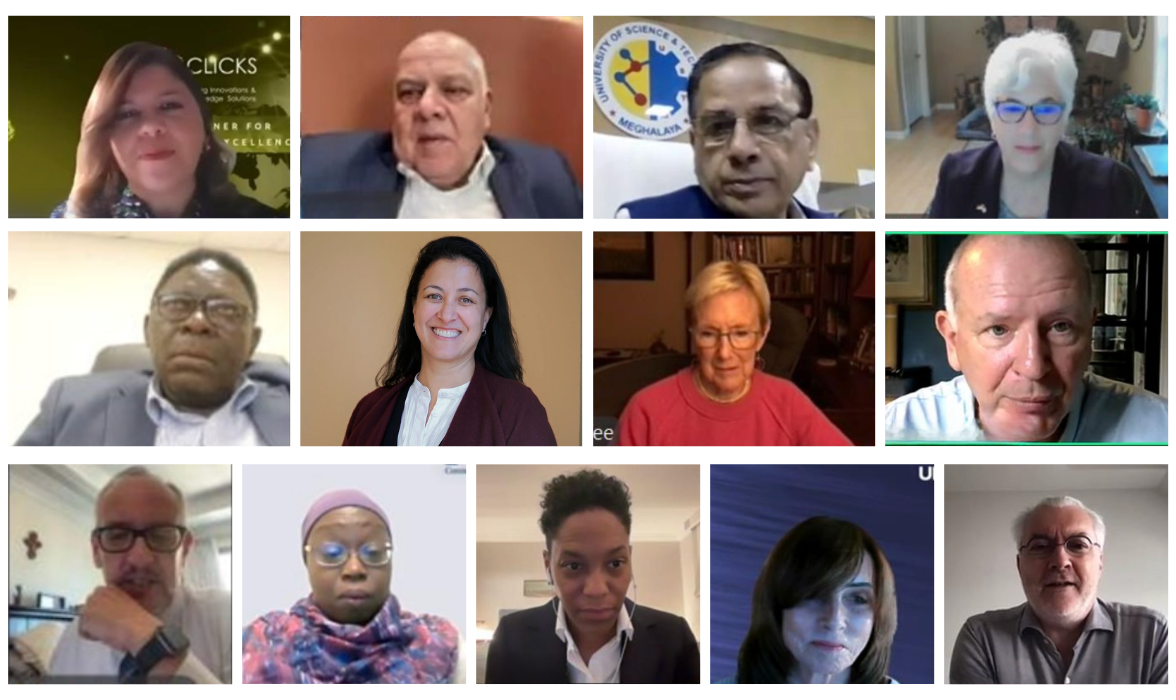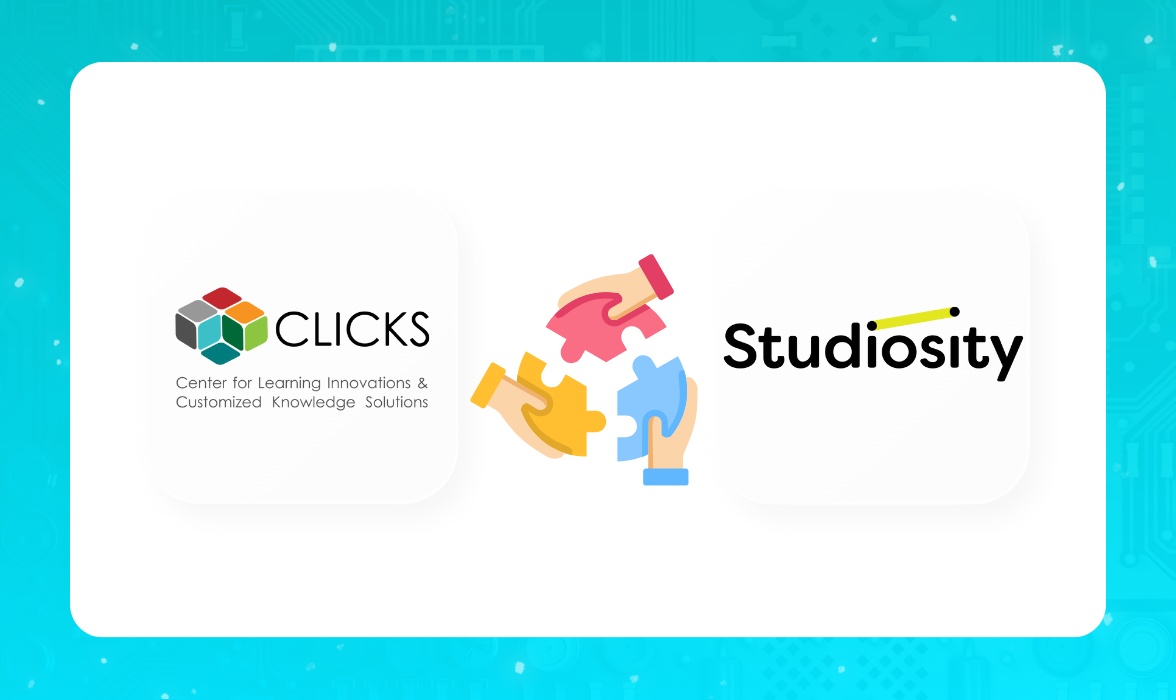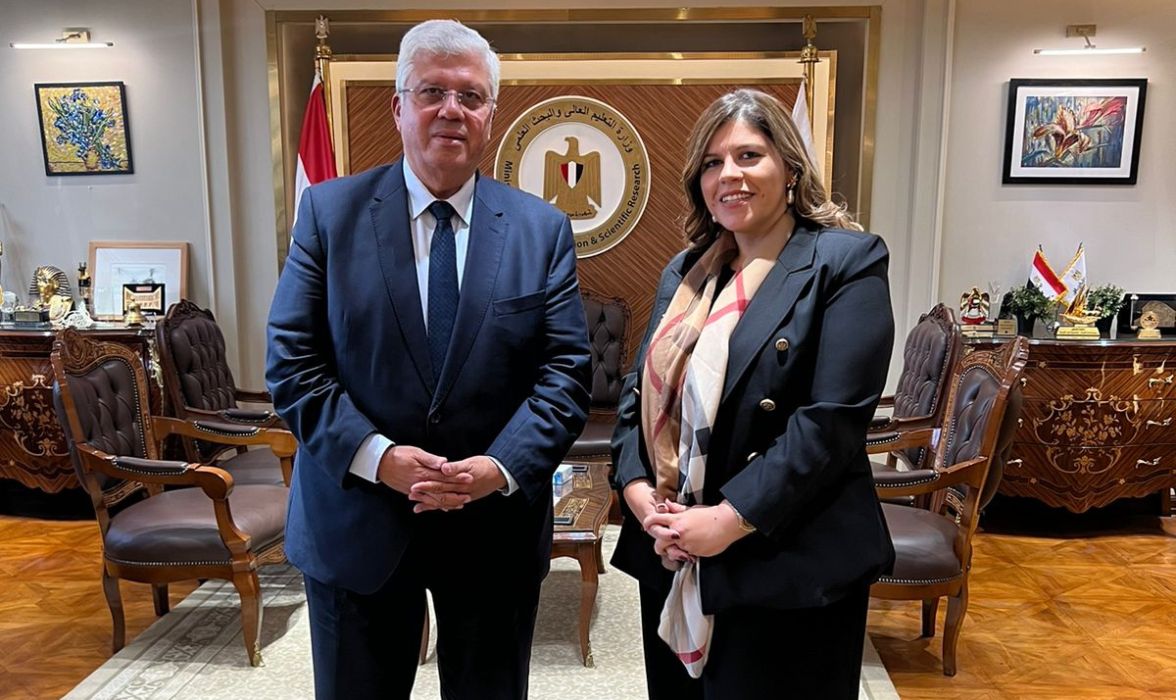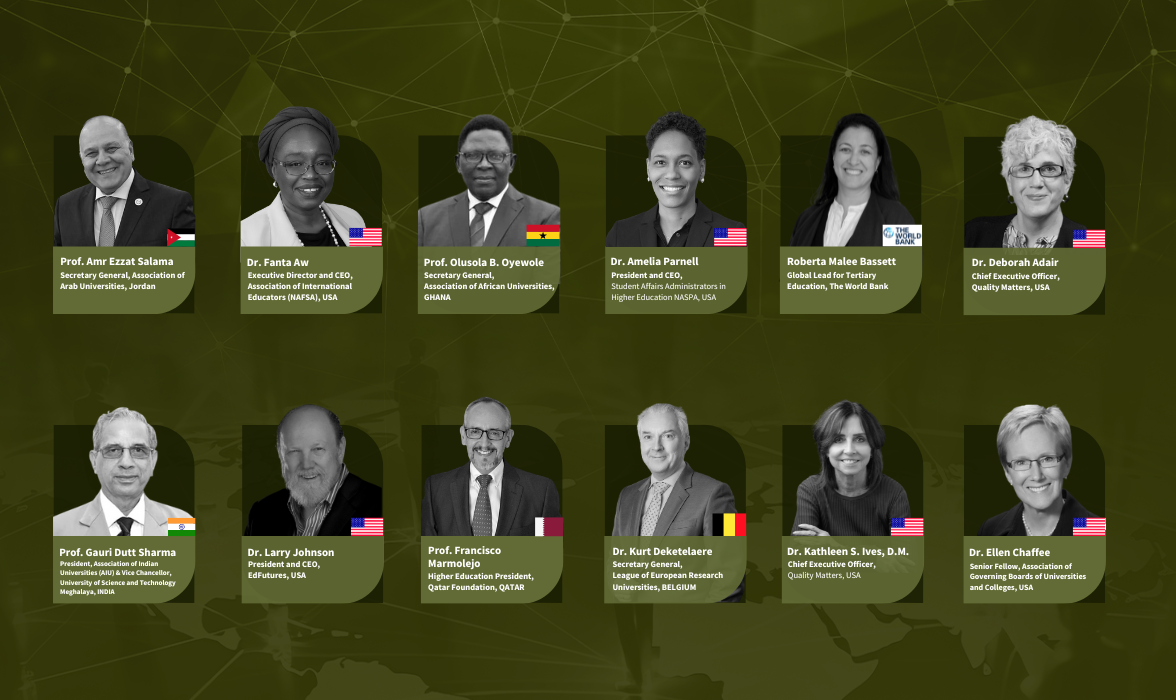The CEO and Founder of the Center for Learning Innovation and Customized Knowledge Solutions (CLICKS), Dr. Narimane Hadj-Hamou has participated on the 19th of November, 2020 to the Global Learning Council Leadership Circle: Higher education: From response to reimagination; as part of the events she served as a panellist on the panel titled “Regional Responses and Pathways to Digital Learning” where she presented perspectives from the middle east and Arab region . The event which was organized by Global Learning Council with the support from the Times of Higher Education and DAAD in Germany involved leaders of higher education from different parts of the world.
The aim of the event was to present empirical findings on the governance of HEIs during the pandemic and the challenges which institutions faced all around the world and explore along higher education experts the different strategies that were pursued and take on a global lens in discussing possible long-term challenges for the higher education sector. Participants representing different parts of the world were later engaged in Breakout groups for a cross-national conversation on digital learning strategies.
The panel was chaired by Prof. Bitange Ndemo from University of Nairobi and involved:
– Dr. Aloys Krieg (Vice-Rector for Teaching, RWTH Aachen University)
– Dr. Nana Aba Appiah Amfo (Pro-Vice Chancellor Academic and Student Affairs, University of Ghana)
– Dr. Narimane Hadj-Hamou (CEO and Founder, Center for Learning Innovations and Customized Knowledge Solutions (CLICKS)
– Dr. Wyn Morgan (former Vice-President for Education, University of Sheffield)
This particular panel was part of a series of three events that were planned during the day covering different regions including Asisa and the Americas.
GLC was founded in 2013 with its HQ currently in Germany with the aim of connecting educators, organizers, and innovators from academia, industry, and the non-profit sector to foster cooperative processes and advance innovative strategies for digital learning. They heavily engage in holding virtual meetings and live conferences with local partners that foster idea-exchange and dialogue. Through their work, they strive to create a platform from which our members can collaboratively develop standards, guidelines and procedures for digital learning, scale up evidence-based best practices, consult the global political leadership in setting up corresponding frameworks, and promote successful models of technology-based learning on a global scale.

